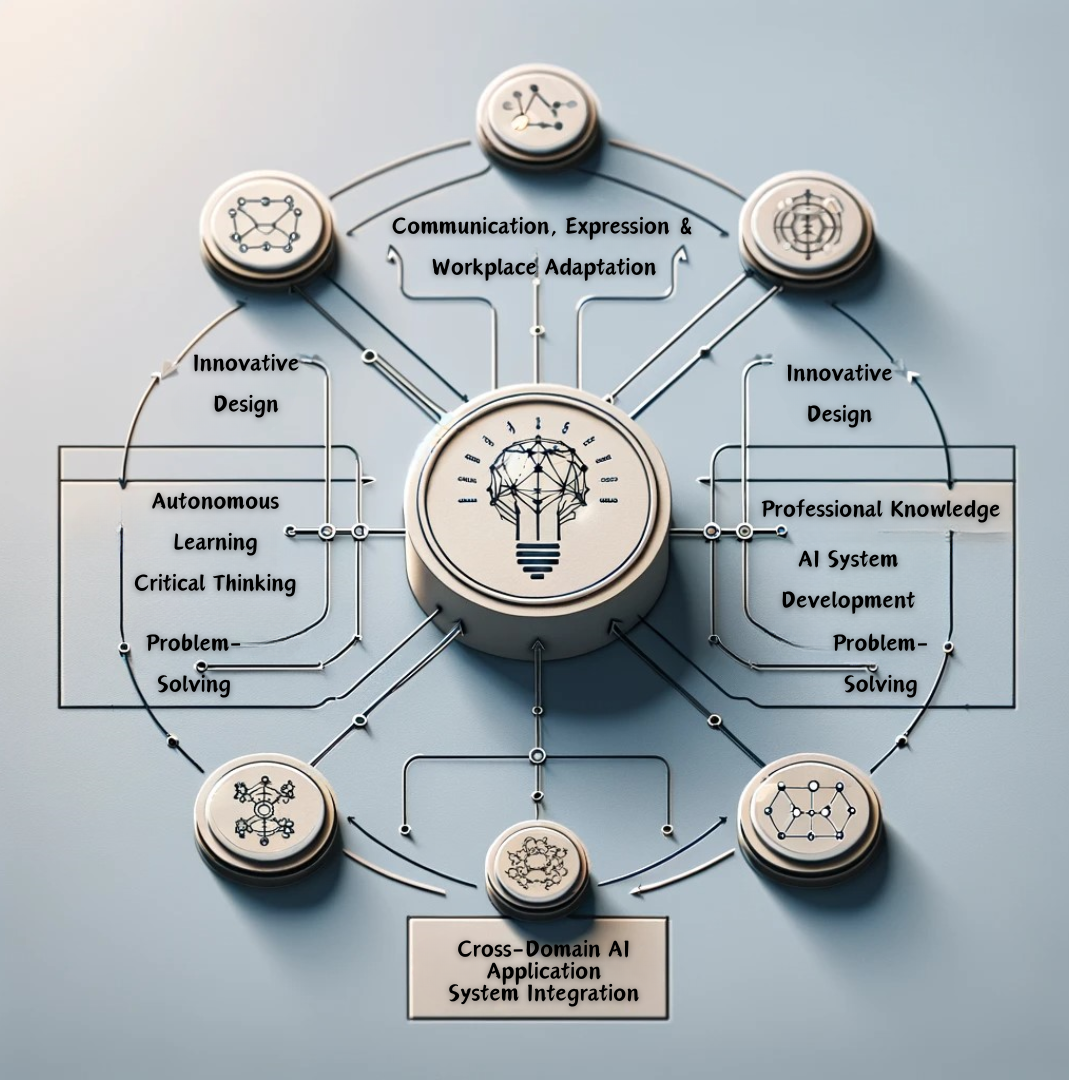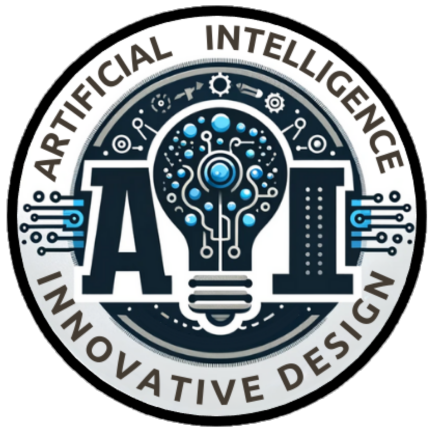Educational Objectives

Fig. Positioning and Educational Objectives of the AI Degree program
Development Goals of the Department
- To strengthen students' capabilities in developing AI application systems.
- To cultivate talents in innovative design and problem-solving.
- To develop the ability to apply and integrate AI across various domains.
Direction and Focus of Departmental Development
-
Academic Aspect: AI Teaching and Talent Cultivation
- This degree program aims for students to learn the core competencies required for AI applications, emphasizing theory and practice. The curriculum spans from critical thinking to hands-on implementation, analyzing industry problems and applying technologies like big data, machine learning, and AI in various professional fields. Core competencies include:
- Fundamental knowledge in AI domains.
- Capabilities in AI applications.
- Insights into the innovative trends of the AI technology industry and establishing a global perspective.
- Independent thinking and problem-solving abilities.
- Leadership, management, and execution skills for research projects.
- Cross-disciplinary integration, expression, teamwork, and effective communication and coordination skills.
- Understanding professional ethics and social responsibility.
- This degree program aims for students to learn the core competencies required for AI applications, emphasizing theory and practice. The curriculum spans from critical thinking to hands-on implementation, analyzing industry problems and applying technologies like big data, machine learning, and AI in various professional fields. Core competencies include:
-
Industry-Academia Aspect: Offering Collaborative Opportunities
- AI technology has a wide range of applications, evident in recent developments like autonomous vehicles, unmanned shops, voice assistants, and unmanned hotels, all closely related to rapid advancements in software and hardware. Data processing is an indispensable part of AI applications. This program will collaborate with various industry sectors, allowing students to innovate and design AI applications and system developments from real-world industrial problems.
Student Aspect: Cultivating Students' Innovative and Entrepreneurial Abilities
- This degree program aims to develop students' knowledge and application skills in the AI field. As AI is set to increase its application significantly, its integration with IoT, unmanned vehicles, big data analysis, image processing, automated driving, smart healthcare, and other technologies will have a broader impact. Hence, students must be able to integrate and apply cross-disciplinary technologies and data processing skills. They will learn to transform unprocessed text, numbers, and files into meaningful information or knowledge using deep learning frameworks, cloud computing platforms, software and hardware system integration, deep learning mathematical models, object recognition, and data processing model building. The program combines classroom creativity and industry problem-solving with practical project presentations and competitions, training students to rapidly and efficiently transition into the industry after graduation.






